Poetry
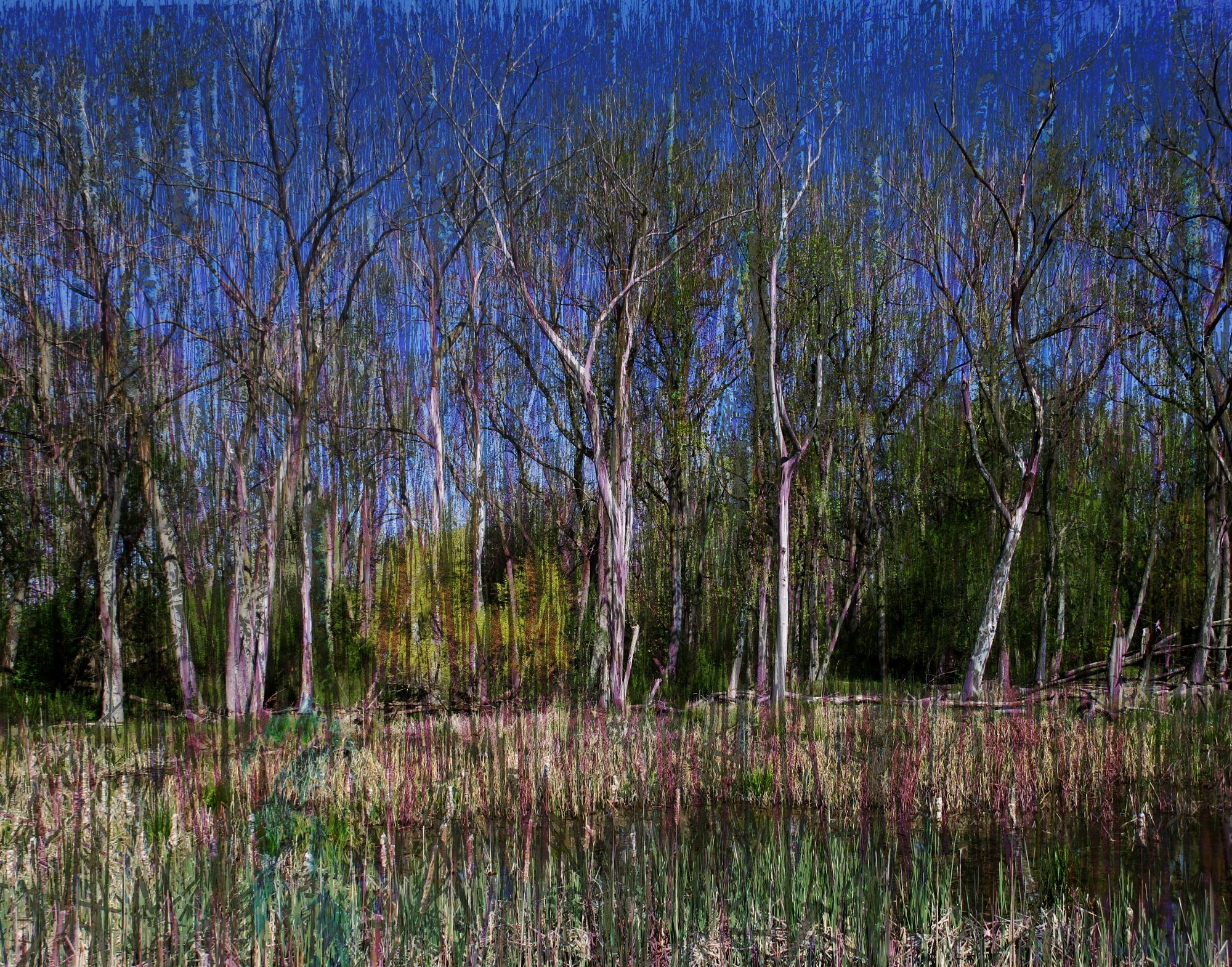
Tread Softly
Streetlights reflected off the mist-wet grass.
Like stars, each blade shimmered, as if the sky
Fell, a tapestry, braided with cut glass,
Beneath our feet, silver stich, verdant dye.
“Imagine,” I said, as we lay, our hands
Interlaced, arms twined, backs damp, closed eyes dry,
“I wove heaven, pulled each weft taut through strands
Of warp, and set it here, for you to rest,
As I hold you tight.” Then you slept. My plans,
Faded like the dew, your head on my chest,
I prayed, silently, so I would not wake
You, you, who kept my words of love, be blessed.
Then night was done. Our day began to break
On us, with dry voice, blurred eye, marrow ache.
Hardened Tears
We’d walk the rails and search for beads of glass—
Jade, amber, puce, lapis— frosted and rough.
You told me they were the tears of trains shed
For passing all the sadness of the world.
Who knew sadness fit in a palm? At home,
In bed, we held those hardened tears to light
And saw, in each, the loss, the pain, the death,
Heard the engines heave, the whistles lament.
I’ve kept one, tucked in my chest, where I save
Those few things I love. On sleepless midnights,
Eyes closed, I roll, like a relic, that stone
Across my cheek, as if it were your touch
Set to calm my blind fear. But you are gone.
I cannot cry. My tears, too, have grown cold.
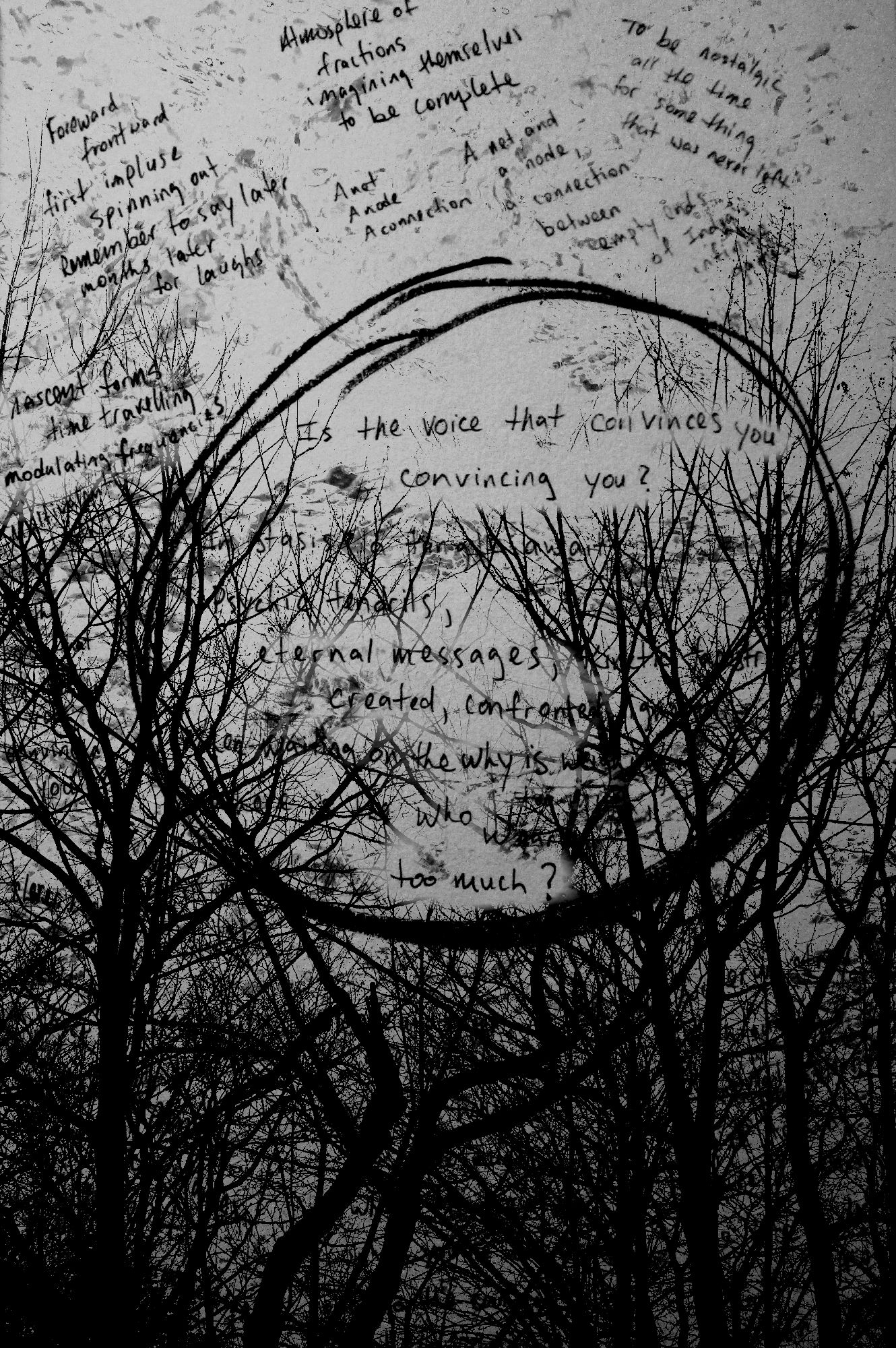
Dos Gatos Coffee Bar-Johnson City, TN
There are these moments in my life when I feel like I can stop time, but time is a fickle thing
that doesn’t stop for anyone and I realized this the day I got a call from my mom telling me
my grandma had seven days to live but she died in three at three in the morning and I wonder
how three could be a lucky number if it left death in its wake, waking me up in the middle of the night
with nightmares of a frightening, old woman who imitated the gentle, caring nature of my grandma
and I read back now and think that half the things I’ve written are cliche and the other half too sad
so I toss them out to write about a cafe where the cold air isn’t really leaking in, but
leaking out because…
the condensation creeps along the windows so slowly, no one notices, until you look up and see
how the once red glow of the sign across the street has faded to a pink and this color blurs with
the black night, so dark you can barely distinguish the road or the frosted cars that drive along it,
but hot tea with steamed milk wards off the chill that slips in your soul and the well-lit cafe that
you think should be warm, but your tea is no longer steaming and there must be a leak
somewhere that allows winter to seep back in and you wonder, how easily it sneaks into you and
your heart and body and thoughts and you tense, when you realize, that cold has always been
there.
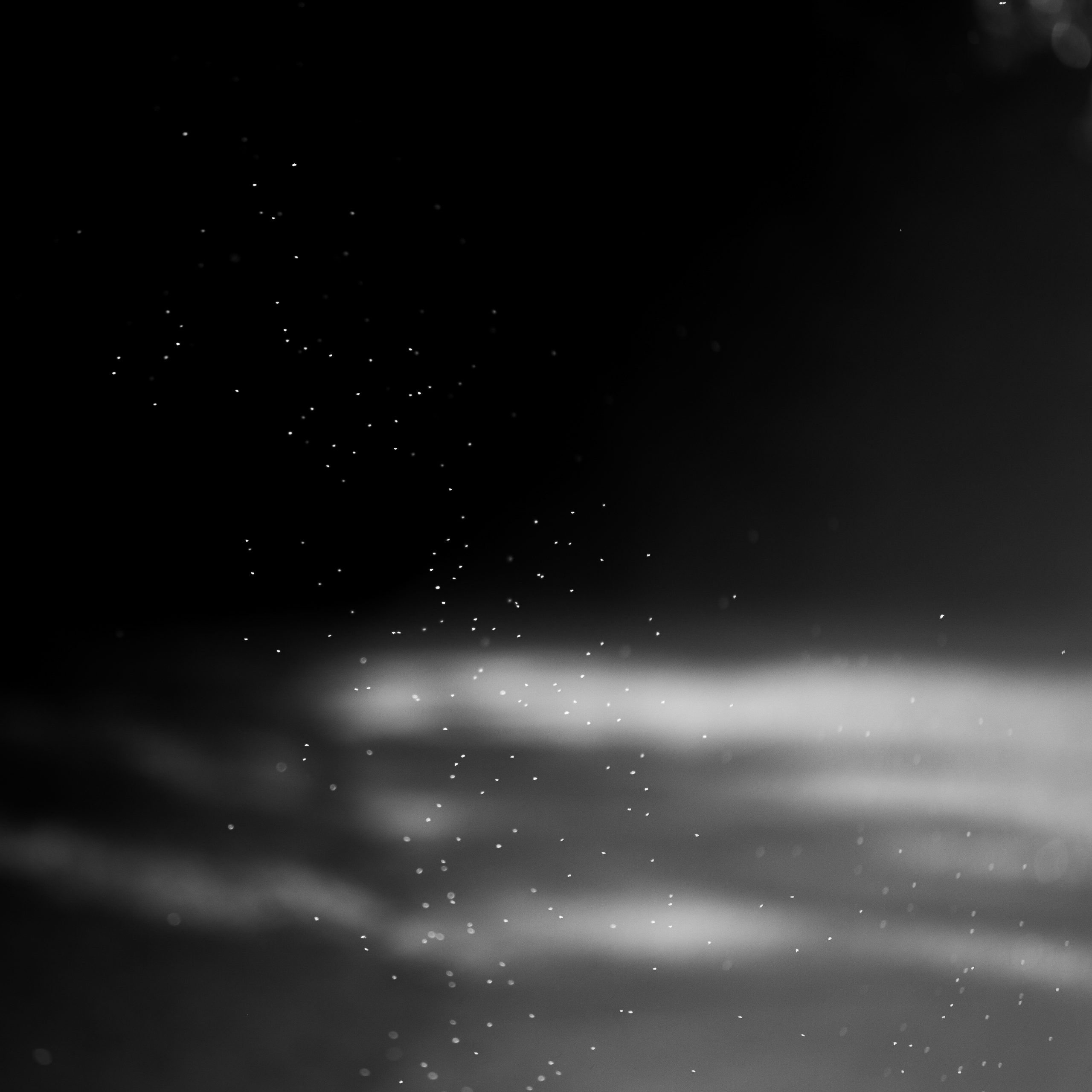
one’s own estuary
I slip both arms into my past like a coat soaked
from the inside with something that isn’t water,
a thing viscous as blood or sap so that the
stickiness makes me a sleepwalker with nothing
to lose, and with nothing I step out into the
white on white light under Baudelaire’s injured
moon—heaving the injured air—trying to trace
a river with my feet who are ever-busy chasing
that river which sometimes is trees and
sometimes is sand and is ever-heavy-laden with
mirage; heavy like the coat over my back as it
drips down my somnambulant spine, down my
limping legs, leaving a puddle: the brackish
reflecting pool of was and is that turns my
waking eyes downward—now I see what has
come off me mingling with the earthdust to
make something so new it sings.
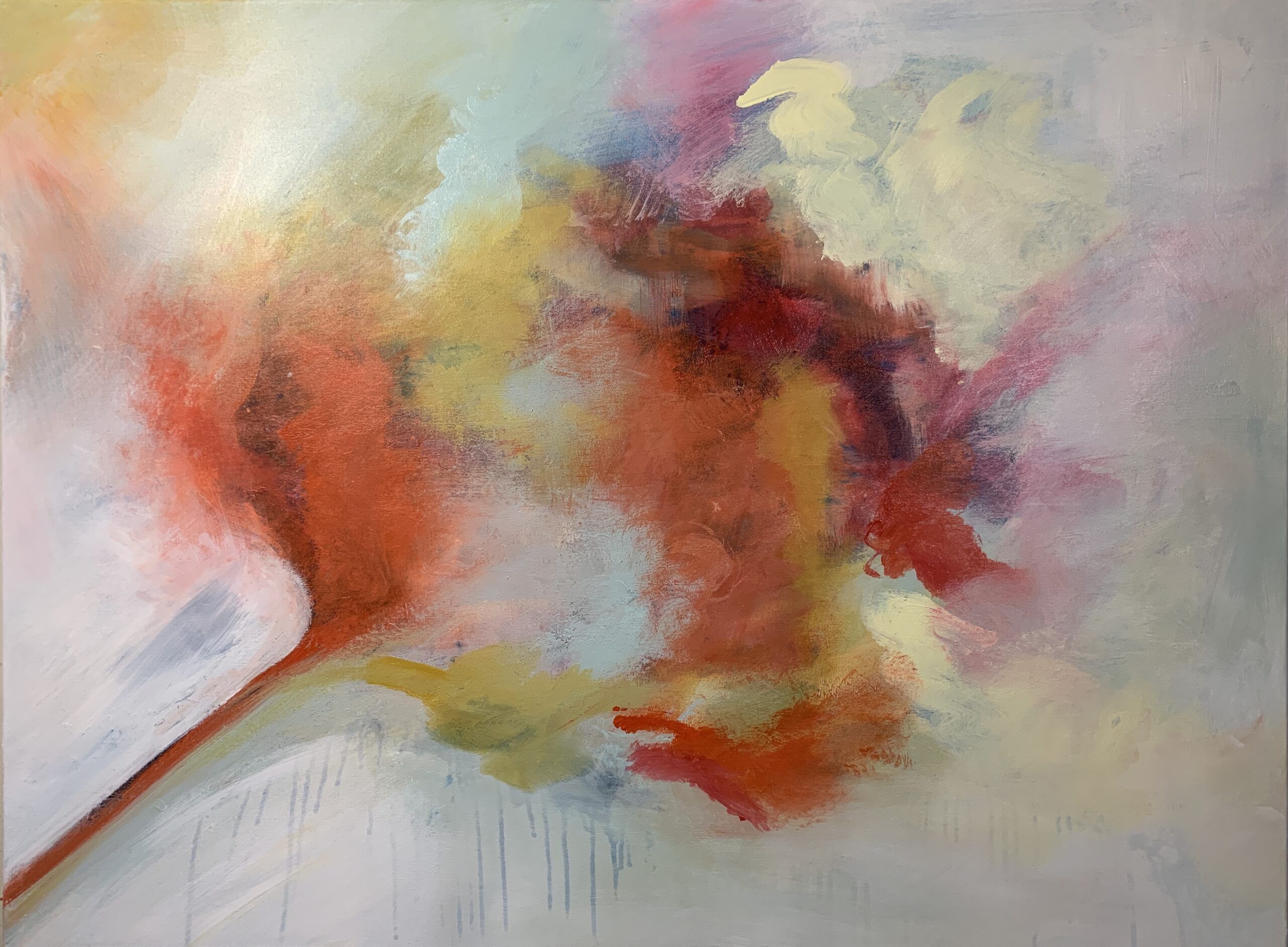
haibun with view of God and forest
prayer used to mean eyes sewn shut tighter than seams on a
baseball. these rituals now seem superfluous, so tonight we took a walk
in some woods—that God and I—we chatted, I cried, and they made no
noise as it paced over the earth, over dust from now-dead suns—
which long ago she recycled into my little finger, a swallow’s tail feather,
my mother’s femur, the white speckles on a fawn. I stop to ask them why a praying
mantis consumes the head of its mate. I ask her what it is about a gray sky that
always drapes a radiologist’s lead blanket over my chest. He turns their eye to me:
it’s a gem, or it’s Borges’ aleph; it’s a quasar, which—like my mind in this moment—
is the fastest spinning object in the universe, stumbling & spilling-over
in the tar-black dark, asking the questions of a damned fool, because
my God is brooding.
I am dust—and all the rest.
these trees are my skin.
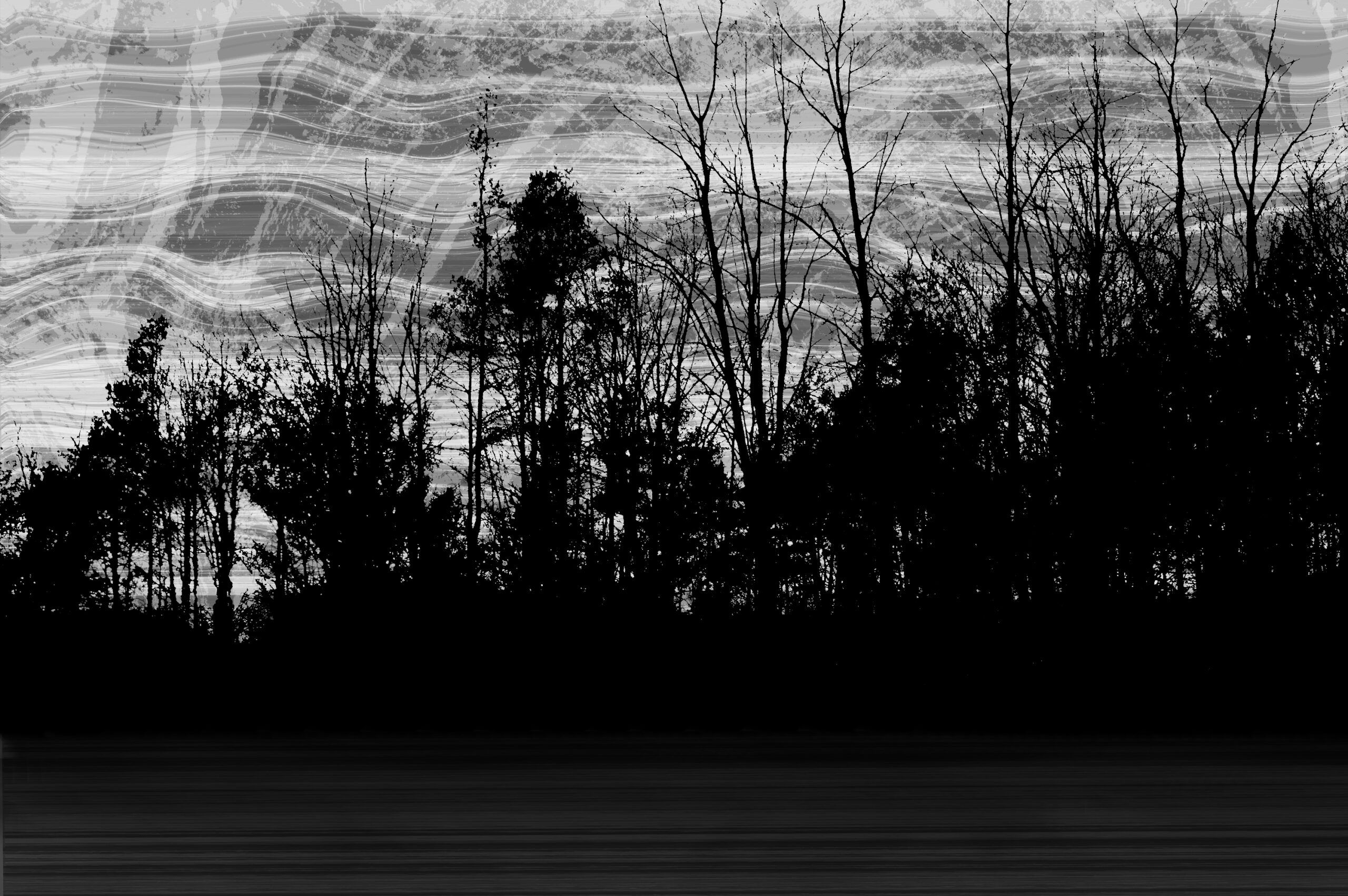
En Route
En Route : A Haibun Sequence
1. Meridian, Mississippi
Meridian was where my passengers needed to go, three church ladies in pastel hats whose car had broken down alongside a tract of logged-out pine. They were fanning themselves in the shade when I stopped to offer help. A Samaritan, praise be. In Meridian there was a cousin with a tow truck. If I could deliver them to his garage, they’d be much obliged. Squeezed together in the backseat, they hummed a hymn and fanned, said that old car was nothing but trouble and the Lord works in mysterious ways.
In town, they directed me up and down humble streets and warned me not to stay too long in Meridian: “the devil’s abode,” the eldest assured me. I said I was hoping to get some lunch. In that case, they all agreed: I should go to Jean’s place, down on Front Street by the train station. Ham and black-eyed peas, they suggested, then hymned their way on into the cousin’s garage, Blessed Auto Repair.
Startled into flight
a flock abandons the tree
magnolia blooms fall
2. Apalachicola, Florida
On the road into town, we keep an eye out for osprey nests, marveling at their construction atop telephone poles. The anhingas, too, are a wonder, airing their wings as they perch on posts along the waterfront. Strolling the streets of Apalachicola, we come across families on holiday, kids licking ice cream cones, public meltdowns, quarrels about where to go next, what to do in the tedious hours ahead. In the Oyster City Bar, someone’s laughing about a bad sunburn: “You should’ve seen the top of his head. Like a big, fat tomato!” Rank sea tang permeates everything, the Gulf Coast in July. In the park, a statue: Doctor Gorrie, inventor of air conditioning. There’s something still unresolved, something left unsaid, the quandary we’ve brought with us but refuse to confront. We stare at the offing, the buildup of storm clouds bringing to mind Emerson:
When we look at ourselves in the light of thought,
we discover life is embosomed in beauty,
all things assuming pleasing forms, as clouds do far-off.
3. Weatherford, Oklahoma
The town shut down early as the first flurries fell. Everyone had gone home long before I arrived, tooling down Main in heavy snowfall, looking for vacancy. I had trouble rousing the innkeeper, who seemed perturbed but still took my money and slid a cold key onto the counter only after scrutinizing the registration form, photocopying my ID, and holding the bills up to the light. Weatherford meant white-out and standstill, an overpriced, seedy room with faltering heat, an hour of flipping through insipid television channels before I dozed off. Come morning, snow filled the streets. Downtown, drifts had blocked doors and storefronts. On the outskirts, number 15 at the Wagon Wheel was banked with snow. When I opened the door, fine powder blew in and sparkled as it melted on the frayed carpet. Wonderful how a blast of winter clears the mind, how extreme cold simplifies matters. Frozen, everything appears crystallized—the branches of a barren tree, a row of stranded boxcars. In Weatherford that day, anything upright—road signs, mileposts—was glazed with ice to the point of startling clarity. But clarity was only in things: myself, I felt as leaden and obscure as ever. Once again, I had second thoughts about the decision to come this way, following the road of false nostalgia. Doubts arose with the snowdrifts. There were crossroads ahead, decisions to make, but for a long day and a half I was forced to wait until the plow appeared to clear a path out of town. As always in the dubious hours, I thought of Bashō, his death poem:
On a journey ailing—
my dreams wander
over a desolate moor.
4. Many Detours
Somewhere in Nebraska—I forget where exactly. A bitter cold day, a wind that brought tears. After two bootless hours at a filling station on the outskirts—telling drivers I was trying to get to Denver or anywhere in that direction—I walked into town along the frontage road, veering into a ditch (cracking through thin ice) whenever the big trucks roared past. Christmas decorations flapping at the used car lot. Pickup trucks parked at the Tack and Feed. Bus depot locked tight. Steam obscuring the diner’s windows. I found the library by the post office, just off the courthouse square, and entered the warm reading room. Set down my pack, took a seat at a table, watched by the librarian and a handful of patrons. In their eyes, I was an obvious vagrant, stranger in a town where there were no strangers. But they let me be, and for an hour I read the newspapers and magazines, feet and hands thawing. Through months of hardship on the road I had not kept up with the news and now I read about the president’s intractable problem, the unending conflict overseas, the fall of governments in South America. There were communities perplexed by kidnappings and addiction. The weather confounded everyone. And what to make of the price of food? Of gasoline? Recent statistics disturbed officials, and in public opinion an ill wind blew. The nation furrowed its brow—never, the editorialists opined, had the impending holidays seemed so grim.
I finished reading and stared out the window. Flurries now, a heavy overcast sky. At any time I could call it off, put an end to this drifting, go back to Spokane, home, the people who waited for me—angry, but ready to forgive, perhaps. I had no reason to believe things would go any better in Denver. Worse for all I knew. A warehouse, a slaughterhouse, gravel work. Busting my hump, barely getting by, paycheck to paycheck. Before I left the library for the bus depot, the librarian asked me to fill out a brief questionnaire. They were trying to keep the library open in the face of budget cuts. What had been the purpose of my visit? There was no obvious answer, (other than “escape from the cold”), so I wrote the words that had haunted me since I first read them in high school—a catchphrase, a dictum, a mantra taken from Roethke’s “Journey to the Interior”:
“In the long journey out of the self there are many detours.”

